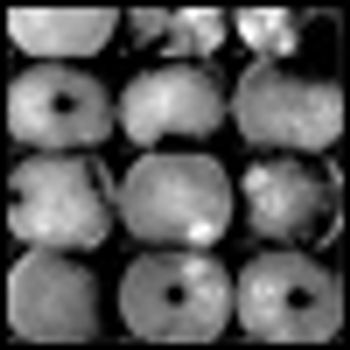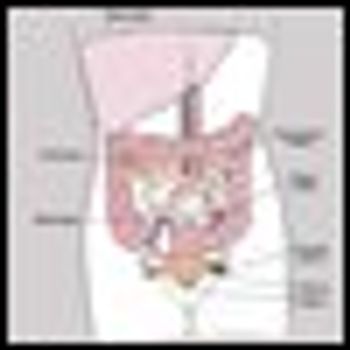
The University of Colorado Health Sciences Center holds weekly second opinion conferences focusing on cancer cases that represent most major cancer sites. Patients seen for second opinions are evaluated by an oncologist.

Your AI-Trained Oncology Knowledge Connection!


The University of Colorado Health Sciences Center holds weekly second opinion conferences focusing on cancer cases that represent most major cancer sites. Patients seen for second opinions are evaluated by an oncologist.

In this issue of ONCOLOGY, Houchens and Merajver[3] have commendably attempted to summarize the results of existing research into the molecular determinants of this aggressive disease. The authors have focused specifically on classical prognostic and predictive markers, although these are not specific to the IBC breast tumor subtype.

Inflammatory breast cancer (IBC) is an aggressive and lethal form of breast cancer. It is also an entity for which no consensus exists regarding its clinical definition. The current nomenclature is considered a misnomer since its clinical presentation is not caused by inflammatory components but mainly by lymphatic obstruction.

Acupuncture is an important component of traditional Chinese medicine. The practice originated more than 2,000 years ago. It involves stimulation of one or more predetermined points on the body with sterile, filiform, disposable needles, sometimes with added heat (moxibustion), pressure (acupressure) or electricity to enhance therapeutic effect. The needles are much thinner than the hypodermic needles used for injections.

The biopharmaceutical company Kiadis Pharma recently announced that the US Food and Drug Administration (FDA) has granted its product Reviroc orphan drug designations for the treatment of two types of non-Hodgkin lymphoma (NHL)-one for diffuse large B-cell lymphoma and the other for the treatment of follicular lymphoma.

Ortho Biotech recently announced the submission of a new drug application (NDA) to the US Food and Drug Administration (FDA) for trabectedin (Yondelis) when administered in combination with liposomal doxorubicin (Doxil) for the treatment of women with relapsed ovarian cancer.

The Melanoma Research Foundation (MRF) responded today to findings by the US Food and Drug Administration (FDA) in the Tanning Accountability and Notification (TAN) Act report (1-year update).

BD Diagnostics recently announced that it received US Food and Drug Administration (FDA) Premarket Approval for the BD FocalPoint GS Imaging System.

Results of the first clinical study examining the use of fostamatinib disodium, an investigational treatment that targets a protein called SYK (spleen tyrosine kinase), showed that the new agent represents a safe and novel therapeutic approach that should be further developed for the treatment of B-cell non-Hodgkin lymphoma.

The results of an international randomized trial found that the use of dexamethasone in the induction phase of combination chemotherapy led to a one-third reduction in the risk of relapse as compared with the standard corticosteroid, prednisone, translating into a significant benefit in terms of event-free survival in children with acute lymphoblastic leukemia.

PROPEL, a multicenter phase II open-label study-the largest prospective clinical trial in patients with relapsed or refractory peripheral T-cell lymphoma-found that the investigational chemotherapy agent pralatrexate produces complete responses (disappearance of all signs of cancer) in patients who had previously failed an average of three treatment regimens, including an autologous stem cell transplant for some patients. Designed to be selectively transported into tumor cells, the novel antifolate pralatrexate accumulates to high concentrations in the tumor cell, inhibiting DNA synthesis, said Owen A. O’Connor, md, phd, Columbia University Medical Center, New York, at the ASH meeting (abstract 261).

Results from three studies presented at the ASH meeting showed that treatment with alemtuzumab (Campath) had activity in high-risk chronic lymphocytic leukemia (CLL) patients who have poor prognostic indicators.

Given that in the 21st century many believe 70 years of age is the new 60 and 80 years of age is the new 70, any article on ovarian cancer in the elderly depends on one’s definition of elderly. To put this in a 21st century perspective, in a thoughtful article on aging in The New Yorker (“The Way We Age Now,” April 30, 2007), Atul Gawande points out, “for most of our hundred-thousand-year existence-all but the past couple of hundred years-the average life span of human beings has been 30 years or less (research suggests that subjects of the Roman Empire had an average life expectancy of 28 years).

Since its early descriptions by Lee and Tannenbaum in 1924, inflammatory breast cancer (IBC) has been recognized as the most aggressive and lethal form of primary breast cancer. With distinct clinical, pathologic, biologic, and molecular features, IBC presents unique challenges and opportunities to breast oncologists and breast cancer researchers.